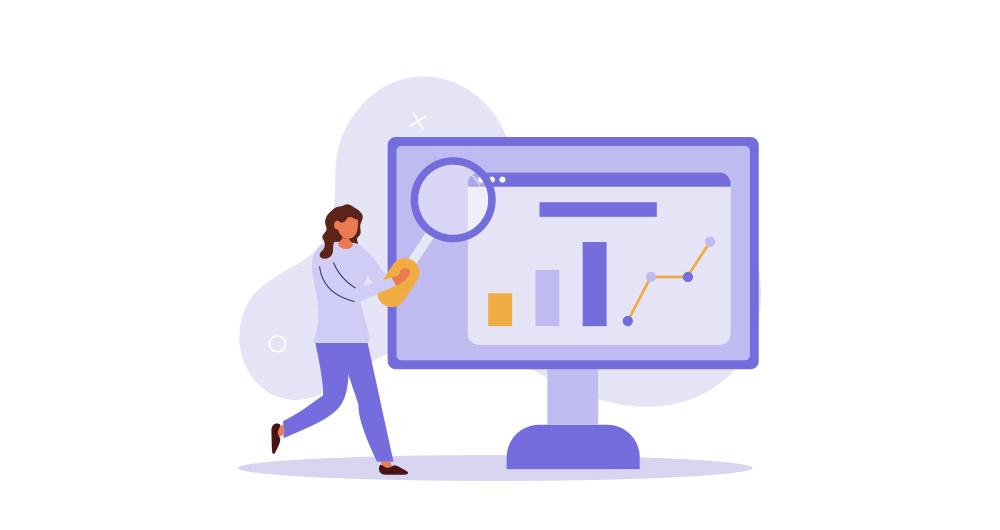
Data literacy has become a crucial issue in the digital age. This concept refers to the ability of people to understand how data is used, how it is accessed, created, analysed, used or reused, and communicated.
We live in a world where data and algorithms influence everyday decisions and the opportunities people have to live well. Its effect can be felt in areas ranging from advertising and employment provision to criminal justice and social welfare. It is therefore essential to understand how data is generated and used.
Data literacy can involve many areas, but we will focus on its relationship with digital rights on the one hand and Artificial Intelligence (AI) on the other. This article proposes to explore the importance of data literacy for citizenship, addressing its implications for the protection of individual and collective rights and the promotion of a more informed and critical society in a technological context where artificial intelligence is becoming increasingly important.
The context of digital rights
More and more studies studies increasingly indicate that effective participation in today's data-driven, algorithm-driven society requires data literacy indicating that effective participation in today's data-driven, algorithm-driven society requires data literacy. Civil rights are increasingly translating into digital rights as our society becomes more dependent on digital technologies and environments digital rights as our society becomes more dependent on digital technologies and environments. This transformation manifests itself in various ways:
- On the one hand, rights recognised in constitutions and human rights declarations are being explicitly adapted to the digital context. For example, freedom of expression now includes freedom of expression online, and the right to privacy extends to the protection of personal data in digital environments. Moreover, some traditional civil rights are being reinterpreted in the digital context. One example of this is the right to equality and non-discrimination, which now includes protection against algorithmic discrimination and against bias in artificial intelligence systems. Another example is the right to education, which now also extends to the right to digital education. The importance of digital skills in society is recognised in several legal frameworks and documents, both at national and international level, such as the Organic Law 3/2018 on Personal Data Protection and Guarantee of Digital Rights (LOPDGDD) in Spain. Finally, the right of access to the internet is increasingly seen as a fundamental right, similar to access to other basic services.
- On the other hand, rights are emerging that address challenges unique to the digital world, such as the right to be forgotten (in force in the European Union and some other countries that have adopted similar legislation1), which allows individuals to request the removal of personal information available online, under certain conditions. Another example is the right to digital disconnection (in force in several countries, mainly in Europe2), which ensures that workers can disconnect from work devices and communications outside working hours. Similarly, there is a right to net neutrality to ensure equal access to online content without discrimination by service providers, a right that is also established in several countries and regions, although its implementation and scope may vary. The EU has regulations that protect net neutrality, including Regulation 2015/2120, which establishes rules to safeguard open internet access. The Spanish Data Protection Act provides for the obligation of Internet providers to provide a transparent offer of services without discrimination on technical or economic grounds. Furthermore, the right of access to the internet - related to net neutrality - is recognised as a human right by the United Nations (UN).
This transformation of rights reflects the growing importance of digital technologies in all aspects of our lives.
The context of artificial intelligence
The relationship between AI development and data is fundamental and symbiotic, as data serves as the basis for AI development in a number of ways:
- Data is used to train AI algorithms, enabling them to learn, detect patterns, make predictions and improve their performance over time.
- The quality and quantity of data directly affect the accuracy and reliability of AI systems. In general, more diverse and complete datasets lead to better performing AI models.
- The availability of data in various domains can enable the development of AI systems for different use cases.
Data literacy has therefore become increasingly crucial in the AI era, as it forms the basis for effectively harnessing and understanding AI technologies.
In addition, the rise of big data and algorithms has transformed the mechanisms of participation, presenting both challenges and opportunities. Algorithms, while they may be designed to be fair, often reflect the biases of their creators or the data they are trained on. This can lead to decisions that negatively affect vulnerable groups.
In this regard, legislative and academic efforts are being made to prevent this from happening. For example, the EuropeanArtificial Intelligence Act (AI Act) includes safeguards to avoid harmful biases in algorithmic decision-making. For example, it classifies AI systems according to their level of potential risk and imposes stricter requirements on high-risk systems. In addition, it requires the use of high quality data to train the algorithms, minimising bias, and provides for detailed documentation of the development and operation of the systems, allowing for audits and evaluations with human oversight. It also strengthens the rights of persons affected by AI decisions, including the right to challenge decisions made and their explainability, allowing affected persons to understand how a decision was reached.
The importance of digital literacy in both contexts
Data literacy helps citizens make informed decisions and understand the full implications of their digital rights, which are also considered, in many respects, as mentioned above, to be universal civil rights. In this context, data literacy serves as a critical filter for full civic participation that enables citizens to influence political and social decisions full civic participation that enables citizens to influence political and social decisions. That is,those who have access to data and the skills and tools to navigate the data infrastructure effectively can intervene and influencepolitical and social processes in a meaningful way , something which promotes the Open Government Partnership.
On the other hand, data literacy enables citizens to question and understand these processes, fostering a culture of accountability and transparency in the use of AI. There arealso barriers to participation in data-driven environments. One of these barriers is the digital divide (i.e. deprivation of access to infrastructure, connectivity and training, among others) and, indeed, lack of data literacy. The latter is therefore a crucial concept for overcoming the challenges posed by datification datification of human relations and the platformisation of content and services.
Recommendations for implementing a preparedness partnership
Part of the solution to addressing the challenges posed by the development of digital technology is to include data literacy in educational curricula from an early age.
This should cover:
- Data basics: understanding what data is, how it is collected and used.
- Critical analysis: acquisition of the skills to evaluate the quality and source of data and to identify biases in the information presented. It seeks to recognise the potential biases that data may contain and that may occur in the processing of such data, and to build capacity to act in favour of open data and its use for the common good.
- Rights and regulations: information on data protection rights and how European laws affect the use of AI. This area would cover all current and future regulation affecting the use of data and its implication for technology such as AI.
- Practical applications: the possibility of creating, using and reusing open data available on portals provided by governments and public administrations, thus generating projects and opportunities that allow people to work with real data, promoting active, contextualised and continuous learning.
By educating about the use and interpretation of data, it fosters a more critical society that is able to demand accountability in the use of AI. New data protection laws in Europe provide a framework that, together with education, can help mitigate the risks associated with algorithmic abuse and promote ethical use of technology. In a data-driven society, where data plays a central role, there is a need to foster data literacy in citizens from an early age.
1The right to be forgotten was first established in May 2014 following a ruling by the Court of Justice of the European Union. Subsequently, in 2018, it was reinforced with the General Data Protection Regulation (GDPR)which explicitly includes it in its Article 17 as a "right of erasure". In July 2015, Russia passed a law allowing citizens to request the removal of links on Russian search engines if the information"violates Russian law or if it is false or outdated". Turkey has established its own version of the right to be forgotten, following a similar model to that of the EU. Serbia has also implemented a version of the right to be forgotten in its legislation. In Spain, the Ley Orgánica de Protección de Datos Personales (LOPD) regulates the right to be forgotten, especially with regard to debt collection files. In the United Statesthe right to be forgotten is considered incompatible with the Constitution, mainly because of the strong protection of freedom of expression. However, there are some related regulations, such as the Fair Credit Reporting Act of 1970, which allows in certain situations the deletion of old or outdated information in credit reports.
2Some countries where this right has been established include Spain, regulated by Article 88 of Organic Law 3/2018 on Personal Data Protection; France, which, in 2017, became the first country to pass a law on the right to digital disconnection; Germany, included in the Working Hours and Rest Time Act(Arbeitszeitgesetz); Italy, under Law 81/201; and Belgium. Outside Europe, it is, for example, in Chile.
Content prepared by Miren Gutiérrez, PhD and researcher at the University of Deusto, expert in data activism, data justice, data literacy and gender disinformation. The contents and views reflected in this publication are the sole responsibility of the author.


